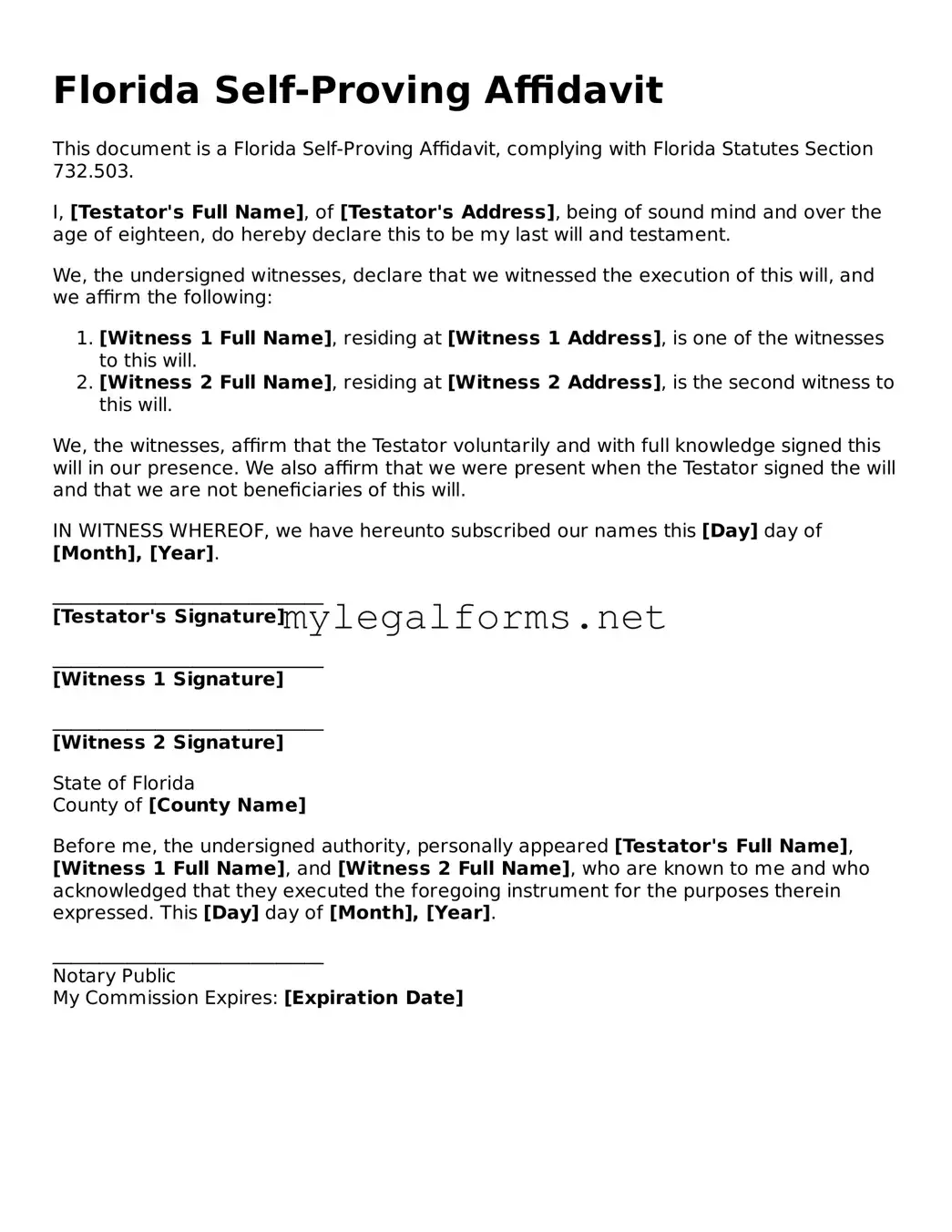Self-Proving Affidavit Document for Florida State
The Florida Self-Proving Affidavit form is a legal document that allows a testator's will to be validated without the need for witnesses to appear in court. This streamlined process can simplify the probate procedure, ensuring that the testator's wishes are honored efficiently. By utilizing this form, individuals can enhance the reliability and enforceability of their estate plans.
Launch Self-Proving Affidavit Editor

Self-Proving Affidavit Document for Florida State
Launch Self-Proving Affidavit Editor

Launch Self-Proving Affidavit Editor
or
⇓ PDF Form
Complete the form at your pace — fast
Finish your Self-Proving Affidavit online and download the final version.